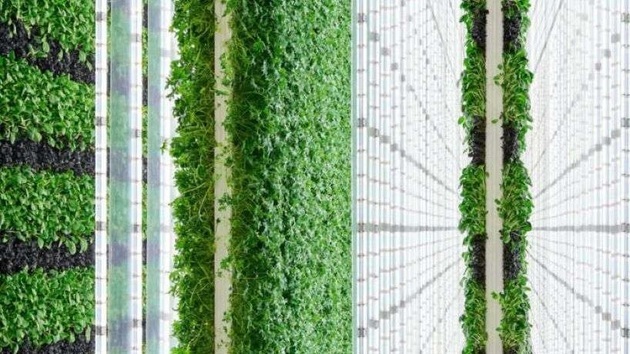In a region with plenty of sun but little water, farming is rarely an easy option, so it’s little surprise that Gulf countries like Saudi Arabia and the United Arab Emirates import around 85% of all the food they consume. Technology might be about to alleviate that problem though.
Vestnik Kavkaza reported earlier about Azerbaijani farmers water issues.
In a region with plenty of sun but little water, farming is rarely an easy option, so it’s little surprise that Gulf countries like Saudi Arabia and the United Arab Emirates import around 85% of all the food they consume. Technology might be about to alleviate that problem though, Forbes informs. While growing crops in outdoor fields might be a challenge in most of the region, the idea of vertical farming looks like it might provide a partial solution. The system involves growing crops indoors in trays layered on top of each other, using techniques such as aeroponics or hydroponics.
Going up
The buildings that house these farms can be huge. What is said to be the world’s largest vertical hydroponic farm opened in Dubai last year on a 330,000 square foot site, equivalent to almost six football pitches. It is able to produce around 1 million kilograms a year of lettuce, spinach, rocket and other crops. Globally, the biggest vertical farming market is the United States, but growth could accelerate quickly in other countries with limited space, such as Singapore, or with a tough climate, like those in the Middle East.
Saudi Arabia is among the places where activity is now picking up. In December, the local Mowreq signed a joint venture deal with Taiwan’s YesHealth to develop a network of indoor vertical farms across Saudi Arabia, with the first due to open in the capital Riyadh before the end of this year. In the past few days another joint venture has been announced, this time between U.S. vertical farming specialist AeroFarms and the Saudi government-owned Public Investment Fund (PIF) to develop another network of vertical farms. The partners in the newest venture say their first farm in Riyadh will be the largest of its kind in the region, with annual production of up to 1.1 million kilograms of leafy greens and herbs. It should start operating in 2024. More sites are due to follow, with AeroFarms co-founder and chief marketing officer Marc Oshima saying they plan to develop several more facilities in the surrounding Middle East and North Africa region in the coming years.
There have been similar moves in several other nearby countries in recent times, with the authorities attracted by the promise of being able to grow crops using 95% less water than conventional agriculture. Crops can also be grown year-round, regardless of weather or seasons. Abu Dhabi has also laid claim to the title of world’s largest indoor farm, with the GreenFactory Emirates facility able to grow around 10,000 tonnes of fresh produce a year. AeroFarms already has some experience of the Middle East market. In November, it signed a partnership agreement with Qatar Free Zones Authority (QFZA) and Doha Venture Capital to build a vertical farm in Qatar. Oshima said that facility should also be up and running next year. It also has an indoor farm dedicated to research and development in Abu Dhabi. That began growing crops last year, but an official opening is due to take place later this month. It is focused on developing new crop varieties and improving growing technologies.
Food security
“Vertical farming will play an important role in addressing food security and food sovereignty,” says Oshima, adding that it can also act as “a catalyst for innovation that can be applied to the traditional field farming as well, accelerating the development of next generation seeds and plants that can be transplanted out into the field as well.”
However, it is not yet clear if the sector can grow sufficiently large to make a real dent in the volume of food imports, beyond a few products. Saudi Arabia’s Prince Khaled bin Alwaleed, founder and chief executive of investment firm KBW Ventures, takes an optimistic view. His firm has invested in Arizona-based agriculture technology (agtech) company OnePointOne.
“One of the reasons KBW Ventures backed OnePointOne is because I believe they can scale, and one of the features of vertical farming that enables scale is localized production planning. You can create a space-optimized facility anywhere – even in the desert – and you won’t have to take seasonality and inhospitable climates into consideration,” he says. “It’s often cited as a downside of vertical farming that not all produce can be grown that way, but I believe the technology is still fairly nascent and we will get there.”






